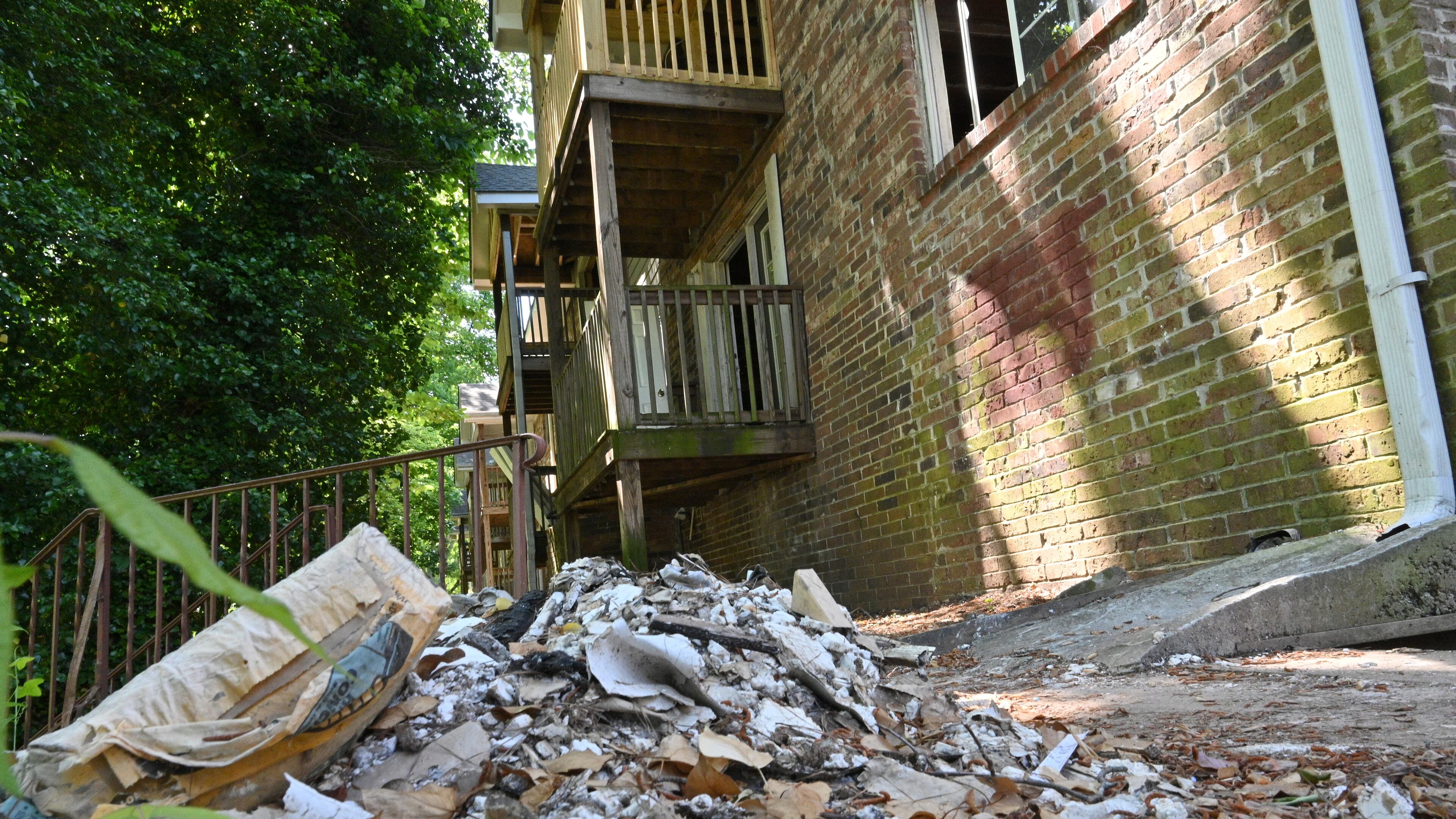
Access to decent housing should be a hallmark of an ethical society – the kind that we should be.
Yet The Atlanta Journal-Constitution’s ongoing investigation “Dangerous Dwellings” shows just how far we are from meeting what should be a baseline – and not some elusive ideal.
This series’ latest reporting once more spotlights the severity and breadth of failures to provide decent, safe housing for those most in need.
Our reporters found that tens of thousands live amid conditions that place their health and safety at risk because apartment owners, often private equity firms and investment groups, routinely dodge attempts by local governments and courts to hold them accountable.
We’re not talking about a bit of peeling paint, scuffed floors or cosmetic defects. Not at all.
The problems put life and health at risk. Broken toilets or water pipes, raw sewage leaks, mold, overflowing trash containers, infestation of rats and other vermin – these are the conditions that too many people are forced to live with.
And unsecured, vacant apartments offer havens for criminal predators. That puts tenants and their children in harm’s way, and at risk of fast-burning fires that squatters set.
Our reporters spent more than a year investigating dangerous conditions at about 270 metro Atlanta apartment complexes, regularly finding decaying and intolerable conditions. It’s a tragedy unfolding before our eyes. An important fact emerges from this maelstrom of neglect: As of last July, 33 apartment complexes on the city’s list of properties with the the highest number of crimes and housing code violations accounted for at least 123 homicides and hundreds of other violent crimes over the past 12 years.
This widespread situation violates the most basic requirement of our government, as expressed in Georgia’s Constitution, which reads that “Government is instituted for the protection, security, and benefit of the people.”
We’re a long way from achieving that promise when it comes to sheltering vulnerable people. We’ve repeatedly failed at the state and local levels to provide a reasonable baseline for ensuring that real estate is maintained at a habitable level.
That must change. Common decency and humanity demand that of us and our governments, which should be empowered to help safeguard society’s basic needs.
We must do better.
Where to begin?
For starters, Georgia needs laws that better ensure landlords properly maintain rental properties. We’re nowhere near that point.
This state’s feather-touch attitude toward regulation exacerbates this housing crisis. Georgia has no minimum standards requiring owners to maintain rental properties, much less to keep them decent, safe or habitable.
Think about that.
And think about whether that’s sufficient for a growing state that widely advertises itself as open for business and a great place to live and work. Part of that reputation demands that we assure that members of our critical workforce can live in safe and healthy conditions.
People, who often pay rent of $1,000 or more a month, deserve better. Many of them are the essential workers who do the work that keeps Georgia’s economy strong.
And, unlike in 41 other states, tenants here cannot withhold rent to force landlords to fix unsafe or unsanitary legal conditions.
As a taxpayer, you pay to subsidize this housing. You pay for the endless police and fire calls that deplorable, crime-ridden complexes generate. You’re letting abusive landlords rake in money without demanding that they provide reasonable living standards.
What is our common duty as a charitable society to the needy in our midst?
Negligent landlords hold the winning hand here now. That’s unfair and wrong – and it should change.
The Georgia General Assembly must act to better equalize the balance of power and responsibility between landlords and tenants. A good starting point: study practices of other states that have more-effective laws.
The Legislature should enact broad, minimal standards spelling out just what characterizes decent housing. Collapsing, water-logged ceilings, broken heating units and dangling balcony railings surely don’t meet even the lowest bar of acceptability.
Having a robust set of guardrails at the state level should also help local and county governments begin to do a better job of regulating housing standards – and enforcing them.
It might also shame some entities into enacting ordinances of their own.
It’s mind-boggling that a major urban center, like Gwinnett County, joins other jurisdictions across the state in having no ordinances that bar apartments from operating with these unlivable conditions.
One result of that lack of law: enforcement is left to code enforcement officers, prosecutors, municipal and magistrate judges and others who often lack the legal authority, resources or time to hold accountable unscrupulous owners.
Even jurisdictions that have tried to attack this problem have found their efforts stymied because they did not have enough power to keep properties from sliding back into disrepair.
The state should lead the way here by providing a benchmark set of livable housing standards.
And standards have no clout unless they have teeth, too.
Weak or nonexistent laws and inadequate resources in code enforcement departments and courts have let negligent landlords operate with few or no reasons to improve their act. Pitifully low fines and skimpy enforcement tools means that even well-meaning courts and prosecutors have been powerless to force owners to fix substandard properties.
The Georgia Legislature and county and local lawmaking bodies must find fixes for that, too.
Our state needs a comprehensive, coordinated, human-focused approach to repairing substandard processes for code enforcement to begin to remedy this problem.
It’s a shame that well-meaning agencies are forced to choose between placing vulnerable people in horrific living conditions because the only alternative is, in effect, consigning them to homelessness.
Georgia is one of the most important and prosperous states in the union. Let’s act like it, and fix this shameful problem.
The Editorial Board.


